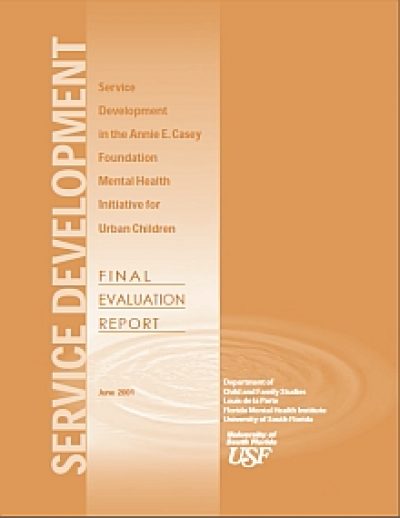Families First
Family input drove service delivery to be culturally competent and family-centered.

Casey’s philosophy is to provide community-based, family-focused, strengths-based, culturally competent services in a comprehensive way. They put it to the test in the Mental Health Initiative for Urban Children demonstration project. This project not only provided mental health services to children in high poverty, urban communities, it worked with states to improve the policies, practices and funding supporting these services. This evaluation reports on the quality and effectiveness of unique service delivery strategies during the initiative.
The Family Resource Center concept, used in all four sites, addressed cultural competence issues and provided the families a comfortable, welcoming environment. Centers were conveniently located within each of the target neighborhoods and provided a broad mix of prevention and intervention services. Residents were instrumental in raising issues of family privacy and confidentiality as critical factors of service delivery. Dropping in for mental health services here was less stigmatizing than traveling to traditional mental health facilities.
We hope you'll find value in this report. We’d love to get a little information from you, which we'll use to notify you about relevant new resources.